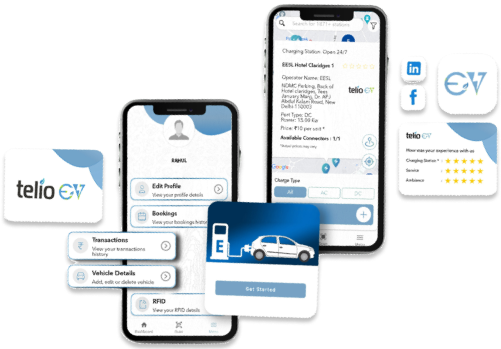What Might Be Next In The Nearby Charging Station
What Might Be Next In The Nearby Charging Station
Blog Article
Enhancing Electric Vehicle Charging with Advanced Management Software

The rapid adoption of electric vehicles (EVs) has required the advancement of effective and easy to use charging solutions. Central to this advancement are Electric Vehicle Charging Management Software (EV CMS) and EV Charging Apps, which simplify the charging procedure for both operators and users.
Comprehending EV Charging Management Software
EV Charging Management Software acts as a thorough platform that makes it possible for Charge Point Operators (CPOs) and other stakeholders to monitor, manage, and optimize EV charging stations. Key functionalities consist of real-time tracking of charging stations, user authentication, payment processing, and energy management. By incorporating these features, the software ensures efficient operation and enhances the user experience.
Key Features of EV Charging Management Software
1. Real-Time Monitoring and Control: Operators can manage the status of charging stations, track energy intake, and address concerns immediately.
2. User Authentication and Access Control: The software manages user access, ensuring that only authorized individuals can make use of the charging centers.
3. Payment Processing: It helps with seamless transactions, supporting various payment approaches to accommodate diverse user preferences.
4. Energy Management: By optimizing energy circulation, the software minimizes operational costs and supports grid stability.
5. Reporting and Analytics: Comprehensive data analysis help in notified decision-making and strategic planning for network growth.
The Role of EV Charging Apps
EV Charging Apps are developed to offer EV owners with convenient access to charging facilities. These applications provide features such as finding close-by charging stations, real-time availability updates, navigation assistance, and remote tracking of charging sessions. By enhancing accessibility and user engagement, these apps play a vital role in promoting the adoption of electric vehicles.
Integration with Open Charge Point Interface (OCPI)
The Open Charge Point Interface (OCPI) is a standardized procedure that facilitates interoperability in between different EV charging networks. Combination with OCPI enables seamless roaming, making it possible for users to access numerous charging networks with a single account. This interoperability improves user convenience and broadens the accessibility of charging facilities.
Benefits of Implementing Advanced Charging Solutions
- Enhanced User Experience: User-friendly user interfaces and dependable services increase consumer complete satisfaction and commitment.
- Operational Efficiency: Automation and real-time monitoring lower manual intervention, reducing functional costs.
- Scalability: Advanced software solutions support the growth of charging networks to meet growing need.
- Revenue Generation: Flexible pricing models and effective payment processing open new revenue streams for operators.
Conclusion
The integration of EV Charging Management Software and user-centric EV OCPI Charging Apps is essential ahead of time the electric vehicle environment. These technologies not just simplify operations for service providers but likewise significantly improve the charging experience for users. As the EV market continues to grow, the adoption of such advanced solutions will be instrumental in fulfilling the increasing demand for efficient and available charging infrastructure. Report this page